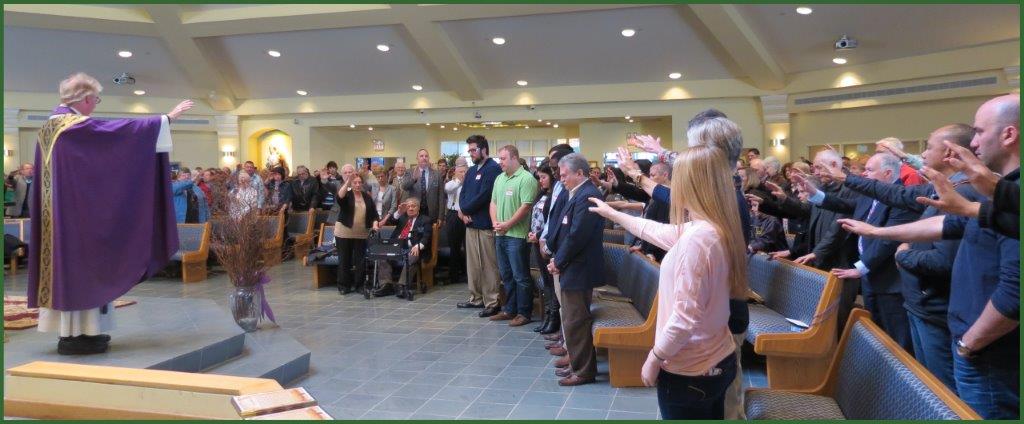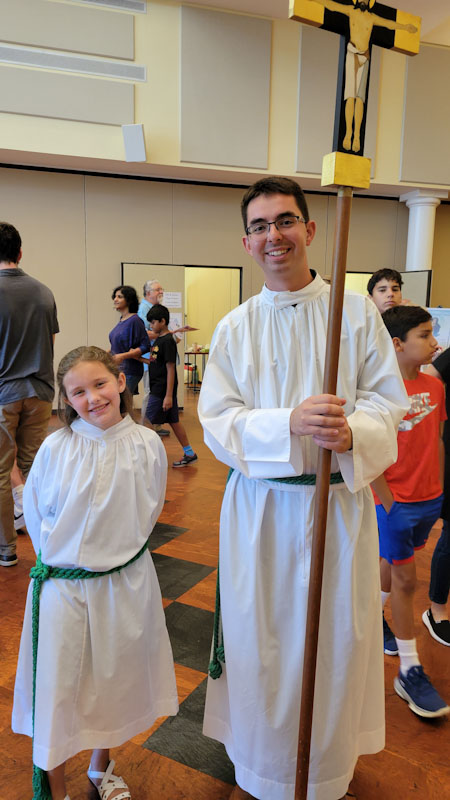Have you ever thought about joining our church? Do you have a friend or relative who might like to explore this? We would like to have a conversation with you!
The Rite of Christian Initiation for Adults (RCIA) is the doorway through which adults seek initiation into the Catholic Church through baptism, confirmation, and Eucharist. The RCIA involves a process of study and conversation, regular involvement in parish worship, and developing fruitful relationships with other Catholics who can serve as mentors.
Generally, the sacraments of initiation for adults are celebrated each spring at the Easter Vigil (the night before Easter Sunday). However, there are unique situations when they can be observed at other times. We welcome people with a wide variety of backgrounds and levels of preparation.
Please feel free to share this with others you know who might be considering joining our church.
Please get in touch with Nanci Bachman at 609-275-7111 ext. 311 or nbachman@stdavidtheking.com to start the conversation. Fall activities begin in early October. We look forward to hearing from you soon.


